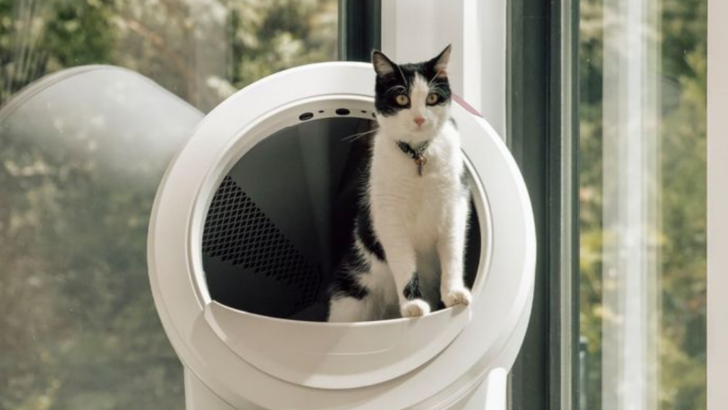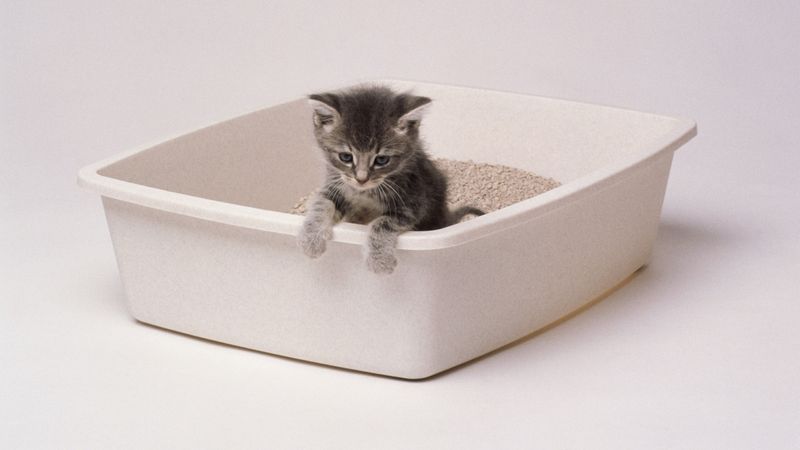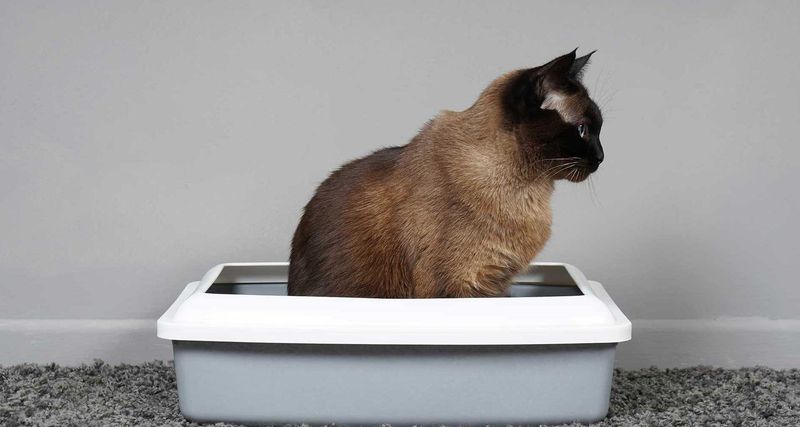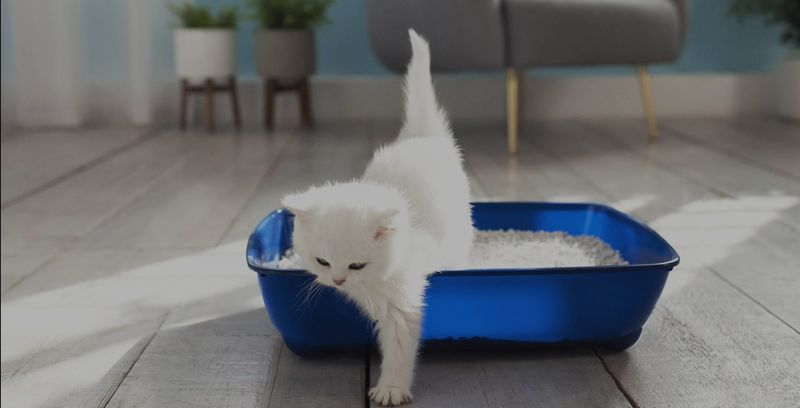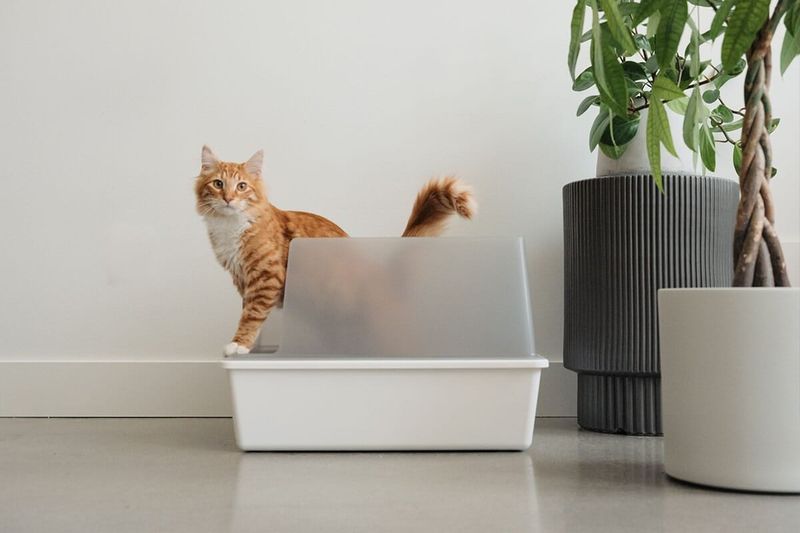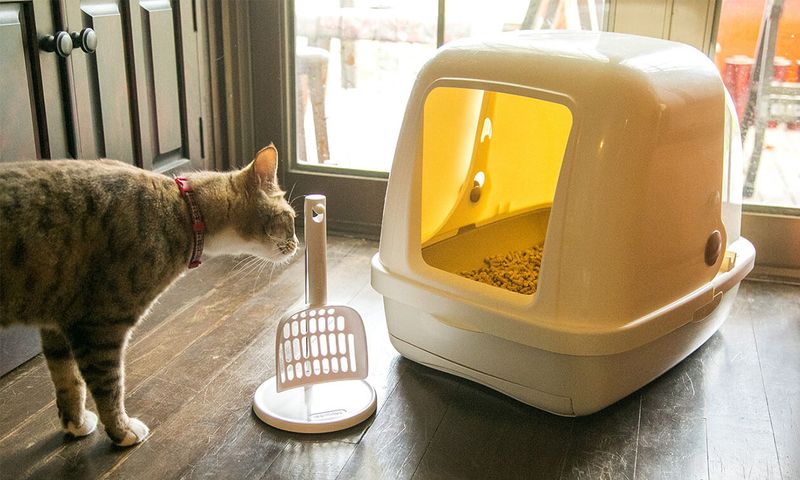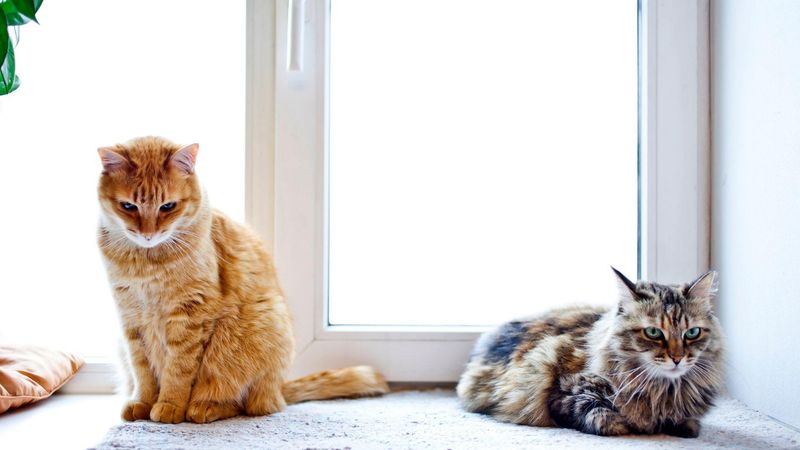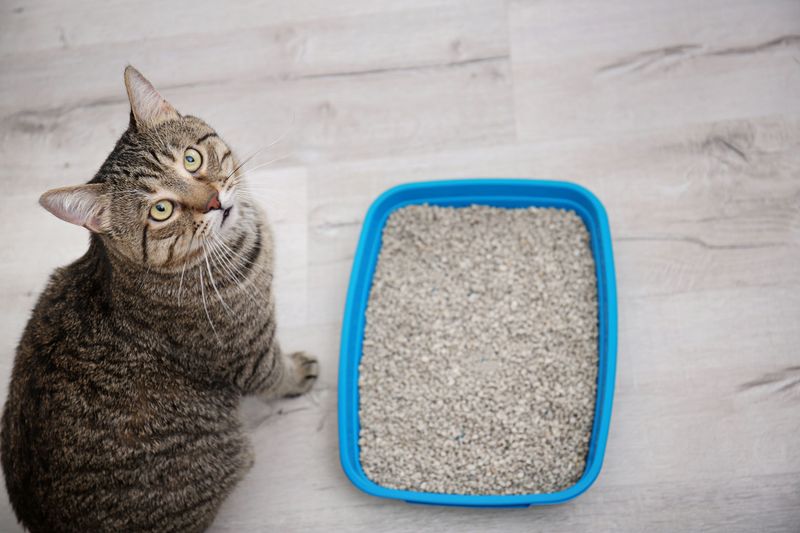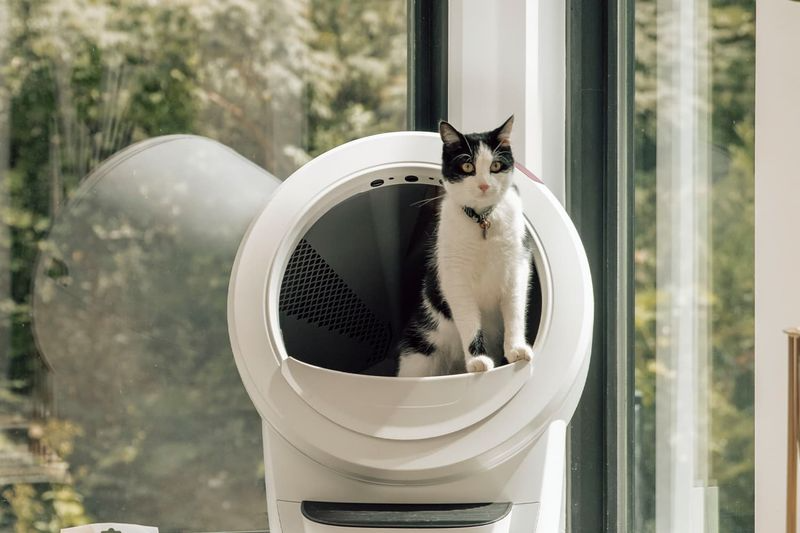If your cat has suddenly stopped using the litter box, you’re not alone. This common issue can be frustrating, but it’s often a sign that something deeper is going on. Cats are creatures of habit, and when their routine changes, they’re quick to show it through their behavior.
From health concerns to environmental factors, there are many reasons why your feline friend might abandon their litter box.
Understanding the root cause is the first step toward solving the problem and ensuring your cat’s comfort and happiness.
We’ll explore eight common reasons your cat might have ditched their litter box, along with practical tips to help you address each issue. Whether it’s a simple adjustment or a trip to the vet, these insights will guide you toward a cleaner and more harmonious home for both you and your pet.
8. Health Issues
Health issues can often be the underlying cause of a cat’s sudden aversion to the litter box. If your cat is experiencing pain while urinating or defecating, they may associate the litter box with discomfort and avoid it altogether. Common health problems that could lead to this behavior include urinary tract infections, kidney issues, and arthritis. If you notice your cat straining, vocalizing in pain, or having blood in their urine, it’s essential to consult a veterinarian.
Early diagnosis and treatment can prevent more severe health complications and help your cat return to its litter box habits. Regular veterinary check-ups are advisable to catch any potential issues early. By addressing health concerns promptly, you’ll not only relieve your cat’s discomfort but also restore their confidence in using the litter box.
7. Dirty Litter Box
A dirty litter box is one of the most common reasons why a cat may stop using it. Cats are naturally clean animals and prefer a tidy and fresh environment for their bathroom needs. If the litter box is not cleaned regularly, your cat may seek alternative locations that they find more suitable.
Cleaning the litter box at least once a day can eliminate this issue. Additionally, periodically washing the box and replacing the litter can help reduce odors that may deter your cat. Consistency in maintaining a clean litter box will encourage your feline friend to return to their usual spot for relieving themselves.
Ensuring a clean litter box is an easy and effective way to prevent litter box avoidance due to hygiene issues.
6. Stress and Anxiety
Stress and anxiety can significantly impact a cat’s behavior, including their litter box habits. Changes in the household, such as a new pet, moving, or even loud noises, can create an environment of stress for your cat. When anxious, they may avoid the litter box as part of their stress response.
Creating a calm and stable environment helps reduce anxiety in cats. Providing quiet, safe spaces, and maintaining a consistent routine can reassure your cat. Additionally, pheromone diffusers and calming supplements can be beneficial in managing a cat’s stress levels.
Understanding and mitigating the sources of your cat’s anxiety is key to resolving litter box issues related to stress.
5. Location of Litter Box
The location of the litter box plays a crucial role in whether your cat will use it or not. If the litter box is placed in a noisy or high-traffic area, your cat might feel uncomfortable and avoid it. Privacy is important for cats when they are doing their business.
Try relocating the litter box to a quiet, easily accessible spot where your cat feels safe. Avoid placing it near loud appliances or in areas where people frequently pass by. This simple change can encourage your cat to return to using the litter box regularly.
Assessing and adjusting the placement of the litter box can make a significant difference in your cat’s litter box habits.
4. Type of Litter
Cats can be quite particular about the type of litter they prefer. A sudden change in the type of litter—from clumping to non-clumping, for instance—can lead to your cat avoiding the litter box. Some cats are sensitive to certain textures or scents in the litter, which can deter them from using it.
Experiment with different types of litter to find one that your cat prefers. It may require some trial and error, but once you discover a suitable type, stick with it to maintain consistency. Consider unscented litters and those that mimic natural textures, as they are generally more appealing to most cats.
Choosing the right type of litter is a crucial step in addressing litter box avoidance issues.
3. Multi-Cat Household
In a household with multiple cats, litter box avoidance can become a social issue. Cats are territorial creatures, and sharing a litter box may lead to conflicts. If one cat dominates the litter box, others may feel intimidated and seek alternatives.
The general rule is to have one more litter box than the number of cats in the household. This ensures that each cat has enough space and privacy to do their business without feeling threatened or rushed. Placing litter boxes in different locations can also help reduce competition among cats.
Implementing this strategy can significantly reduce litter box issues in multi-cat homes.
2. Litter Box Size
The size of the litter box matters, especially for larger cats. If the litter box is too small, your cat may feel cramped and uncomfortable using it. Cats need enough space to turn around and find a comfortable position, and a box that is too small can deter them from using it.
Consider upgrading to a larger litter box that accommodates your cat’s size. A bigger box not only provides more comfort but also helps keep the surrounding area cleaner, as it reduces the chances of litter being kicked out.
Choosing the appropriate size for your cat’s litter box is a simple yet effective way to encourage regular use.
1. Old Habits
Sometimes, old habits can lead to litter box avoidance, especially in senior cats. Older cats might revert to behaviors from their youth, such as eliminating outside the box. Physical discomfort or cognitive decline associated with aging can also contribute to this issue.
Regular veterinary care and a tailored environment can help manage these challenges. Providing senior-friendly litter boxes with low sides for easy access is crucial. Additionally, maintaining a predictable routine and using familiar litter can comfort older cats.
Understanding and accommodating the needs of senior cats can help mitigate litter box issues related to age and habit changes.
